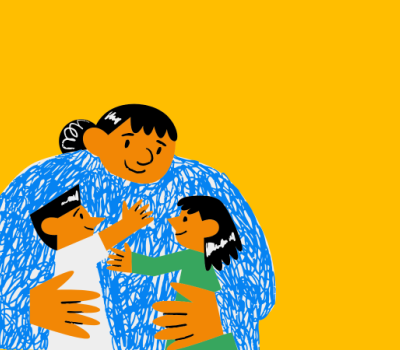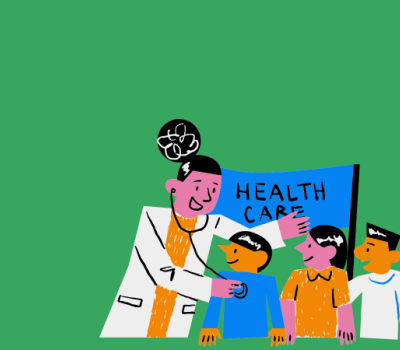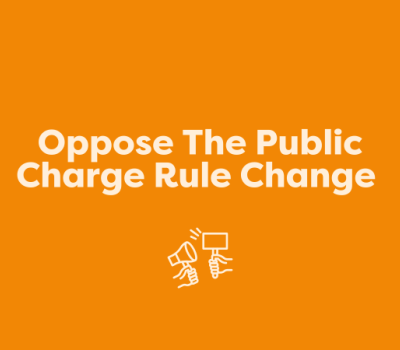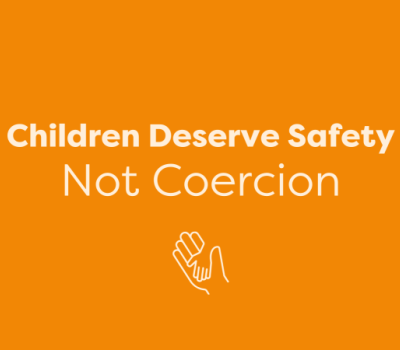-
03/11/2025 Update: CMS Proposed Rule Threatens Health Coverage for DACA Recipients
On March 11th, 2025, the Centers for Medicare and Medicaid Services released a proposed rule that, if finalized, would remove DACA recipients’ access to the ACA marketplace, among other changes to the marketplace. While it’s unclear whether this rule will also affect other immigrant groups that were expanded under last year’s changes, the immediate impact would be felt by DACA recipients.
What’s in the Proposed Rule?
- Shortened ACA Enrollment Period: The proposed rule would shorten the ACA annual enrollment period for 2026 coverage year policies from November 1 to December 15, reducing the window for enrollment from the previous January 15 end date.
- Notice of Proposed Rule Making (NPRM): This rule is currently a Notice of Proposed Rulemaking (NPRM), which means there will be a public comment period for 30 days after it is published in the Federal Register. Until the rule is finalized, DACA recipients who are currently enrolled in the ACA will not be impacted and can continue using their benefits.
- Next Steps: The CMS will still need to take public comments before it can finalize the rule, which could take several months. In the meantime, DACA recipients should continue using their ACA benefits without interruption.
What Does This Mean for DACA Recipients?
For now, DACA recipients who are enrolled in ACA health coverage should continue using their benefits as usual. We encourage everyone who is impacted to stay informed, as updates will be shared as the rule progresses through the comment and review process.
-
Health Coverage Access for DACA Recipients in Utah
Original blog post published 9/25/24
For Deferred Action for Childhood Arrivals (DACA) recipients, access to health coverage through the federal marketplace has been out of reach since the program's implementation in 2012. A recent report by the National Immigration Law Center revealed that 20% of surveyed DACA recipients do not have any form of health insurance.
However, thanks to new federal rules, starting November 1st, 2024, DACA recipients in Utah and across the nation will be eligible to enroll in private health insurance plans through the Affordable Care Act (ACA) Health Insurance Marketplace, such as HealthCare.gov. Centers for Medicare & Medicaid Services (CMS) estimates that roughly 100,000 previously uninsured DACA recipients could enroll in health coverage through Marketplace plans this fall.
What is the Marketplace?
The Marketplace, also known as the Health Insurance Marketplace, the ACA Marketplace, or the “exchange” is a shopping and enrollment service for medical insurance, created after the passage of the Affordable Care Act in 2010. In most states, the federal government runs the marketplace for individuals and families, though some states have created their own version of the marketplace.
What is the Deferred Action for Childhood Arrivals program?
The Deferred Action for Childhood Arrivals (DACA) program allows temporary relief from deportation and work authorization for individuals brought to the United States as children, commonly referred to as ‘Dreamers.’ As of December 2023, there are over 7,000 active DACA recipients living in Utah, spanning across the Wasatch front, including 3,740 in Salt Lake County, 1,430 in Utah County, and 1,360 in Weber County.
I'm a DACA Recipient What Does It Mean For Me?
While some DACA recipients may already have health coverage through their employer, many others do not. This includes entrepreneurs, self-employed individuals, stay-at-home caregivers, or those whose employers don’t offer health insurance.
Starting November 1st, 2024, you will be eligible to enroll in private health insurance plans through the health insurance marketplaces created by the Affordable Care Act (ACA), like HealthCare.gov. Depending on your income, you may qualify for subsidies that make buying and using marketplace coverage more affordable. You will be eligible for a “special enrollment period” in 2024 that will allow you to start using health insurance on December 1st, 2024 if you enroll by November 30th, 2024. If you enroll after that date, your coverage may not start until January 1st, 2025. We encourage you to apply as soon as possible.
Learn how to apply and get coverage by checking out this helpful FAQ!
How Can I Sign Up For Coverage?
DACA recipients can enroll online beginning November 1, 2024 – January 15, 2025. To start coverage as soon as December 1, 2024, apply between November 1 and November 30, 2024. To start coverage on January 1, 2025, apply and select a plan between November 1 and December 31, 2024.
Visit the Marketplace: Go to HealthCare.gov, CuidadodeSalud.gov
-
Create an Account: If you haven’t already, you’ll need to create an account to start your application.
-
Complete Your Application: During the application process, you’ll be asked for information about your household income, household size, and immigration status. The Marketplace will not collect identifying information for household members who are not seeking health coverage. Follow on-screen guidance for attesting to questions about eligible immigration status.
-
Review Your Options: Once your application is processed, you’ll be able to see available health plans and financial assistance that you may qualify for to help lower the cost of your health plan.
-
Choose a Plan: Compare plans based on coverage, cost, and your health care needs. Select your Marketplace plan by January 15, 2025, to ensure you don’t miss out on coverage.
Get Free Enrollment Assistance
Enrollment specialists across the state are ready to guide you through the Marketplace process, making it easier to complete your application successfully. Here are some places you can go to get free enrollment assistance:
When Parents are Covered, Children Thrive
Many DACA recipients in Utah are deeply connected to their communities, averaging 25 years in the United States. Approximately 35% of Utah DACA recipients are parents to 10,000 U.S. citizen children. Research consistently shows that children are more likely to access health insurance and healthcare services when their parents are insured, a phenomenon known as the “welcome mat” effect. When parents gain access to health coverage, their children also benefit. Parents who receive adequate healthcare are better equipped to care for, provide for, and support their children. Improved parental insurance coverage and health outcomes positively impact children in both the short and long term, enhancing family health and financial security.
Additionally, when children have access to health coverage, their use of preventive care increases, which can lead to better health outcomes as adults, including fewer hospitalizations and emergency room visits. By spreading awareness of this new rule, we can encourage uninsured DACA recipients to explore coverage options for themselves and, in the process, learn about existing programs such as Medicaid or CHIP for their children if they aren’t already covered.
Legal Challenges Ahead
DACA recipients know all too well the uncertainty that comes with ongoing legal battles, having faced numerous lawsuits and court decisions since 2017. Unfortunately, a coalition of 15 Republican-led states has filed another lawsuit, this time to block DACA recipients from accessing healthcare through the ACA Marketplace. Fortunately, The National Immigration Law Center has filed a motion to intervene in the federal lawsuit to defend DACA recipients' rights to access health coverage through the ACA.
We recognize and understand the exhaustion of short-term victories followed by complicated legal setbacks. Despite these legal challenges, we are moving forward with national partners to ensure eligible DACA recipients are informed and encouraged to apply for health coverage.
Future Outlook
At Voices for Utah Children, we understand that having health coverage is a critical factor in laying the foundation and bridge toward better health outcomes. Access to health insurance not only reduces financial barriers to necessary medical services, but also ensures that children and families can receive preventive care, early diagnosis, and timely treatments. This access helps prevent illnesses from escalating into more severe health conditions, particularly for vulnerable populations.
We also recognize that various barriers impact access to coverage. Sometimes, someone’s immigration status, or lack thereof, can make the difference between what type of care and coverage they are eligible for and have access to.
The opportunity for DACA recipients to access healthcare through the ACA Marketplace is long overdue. Despite the ongoing legal battles and uncertainty, the ability to gain health coverage can have life-changing implications, especially for DACA recipients with families and children. This opportunity will empower thousands of individuals and families to secure better health and financial stability.
Now more than ever, it’s crucial to spread awareness, encourage enrollment, and ensure that every eligible DACA recipient is equipped with the knowledge and resources to navigate this new opportunity. By taking advantage of this moment, DACA recipients can take control of their health and well-being, contributing to stronger, healthier communities across Utah. Together, we must push forward to secure these gains and continue advocating for more inclusive healthcare solutions.
-
For the latest updates on DACA and ACA, follow us on Instagram: @utahchildren and @uiac_ut
-
For more information, reach out to Thaiss Del Rio
This email address is being protected from spambots. You need JavaScript enabled to view it.
- Please Note: We’ve corrected the special enrollment period dates. DACA recipients and other eligible individuals who qualify for the special enrollment period need to enroll between November 1 – November 30 to get coverage by December 1, 2024. If they enroll in coverage by December 31, their coverage will begin on January 1, 2025. (Updated on 10-17-24)












